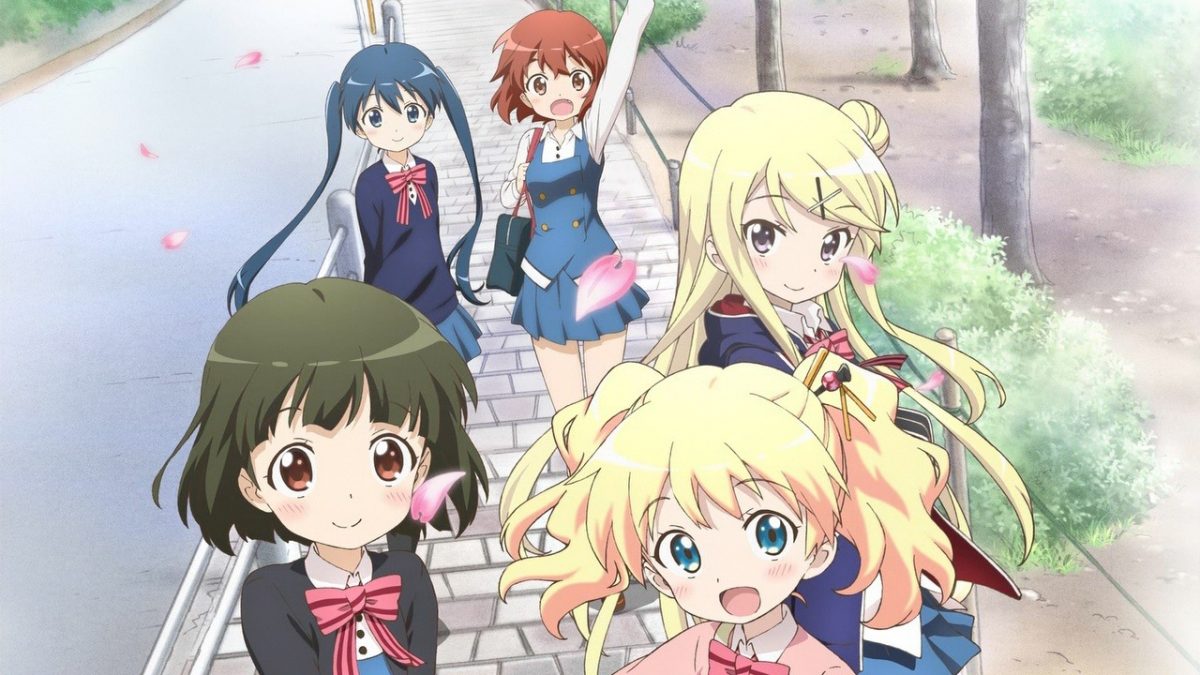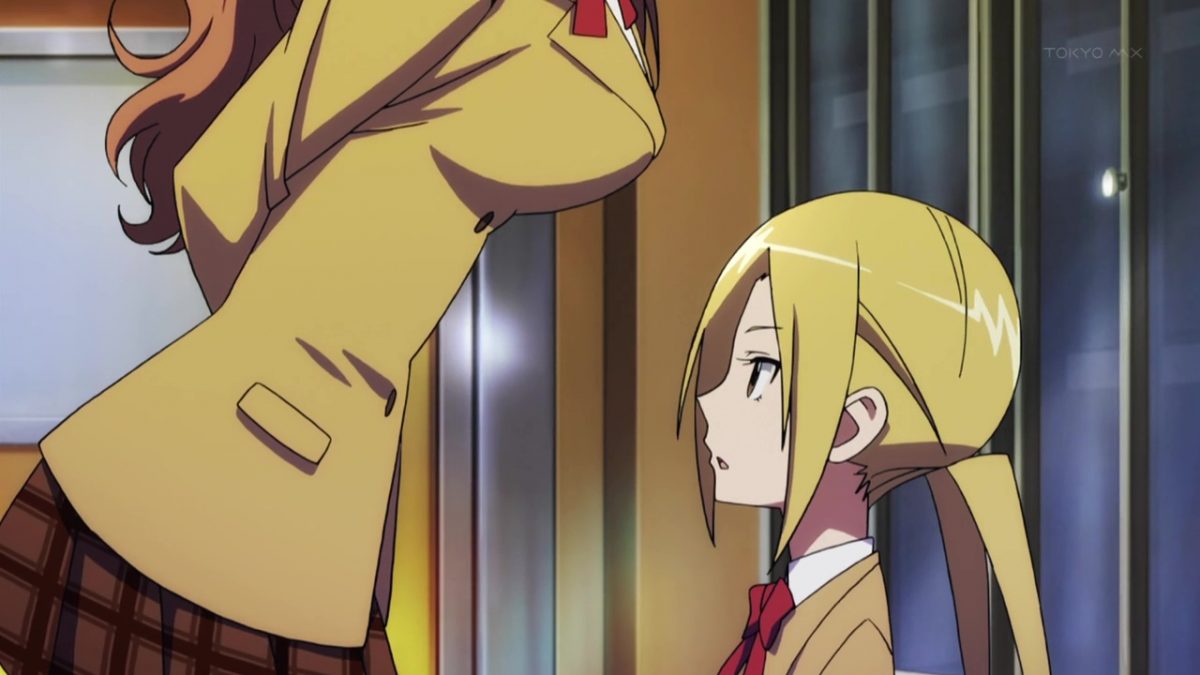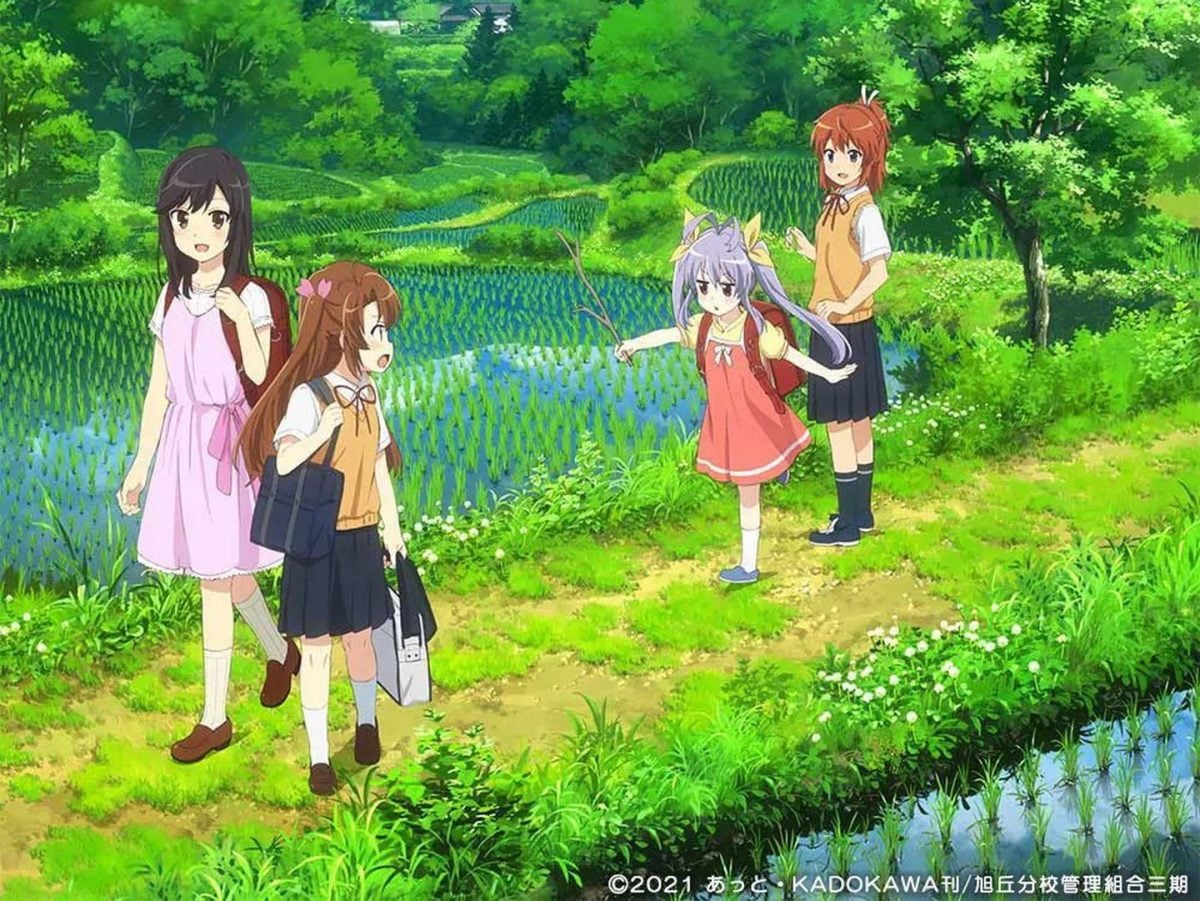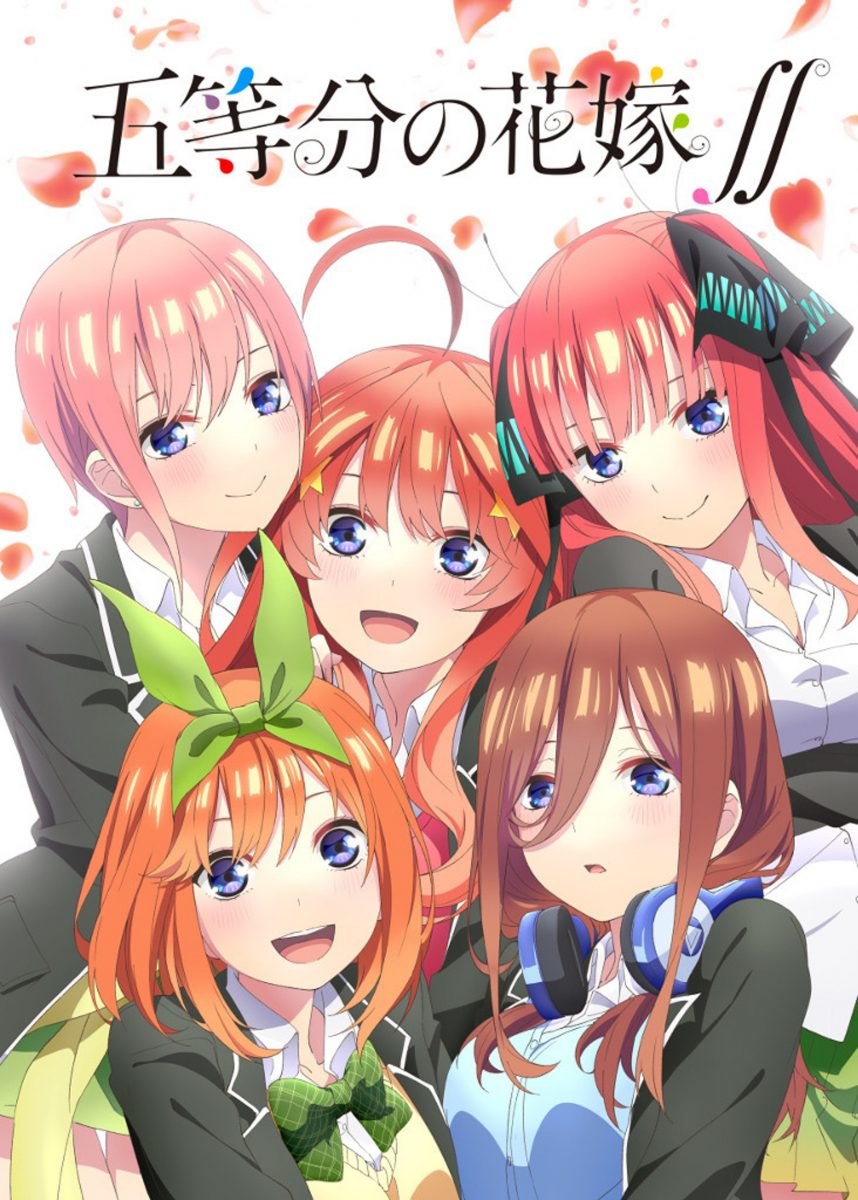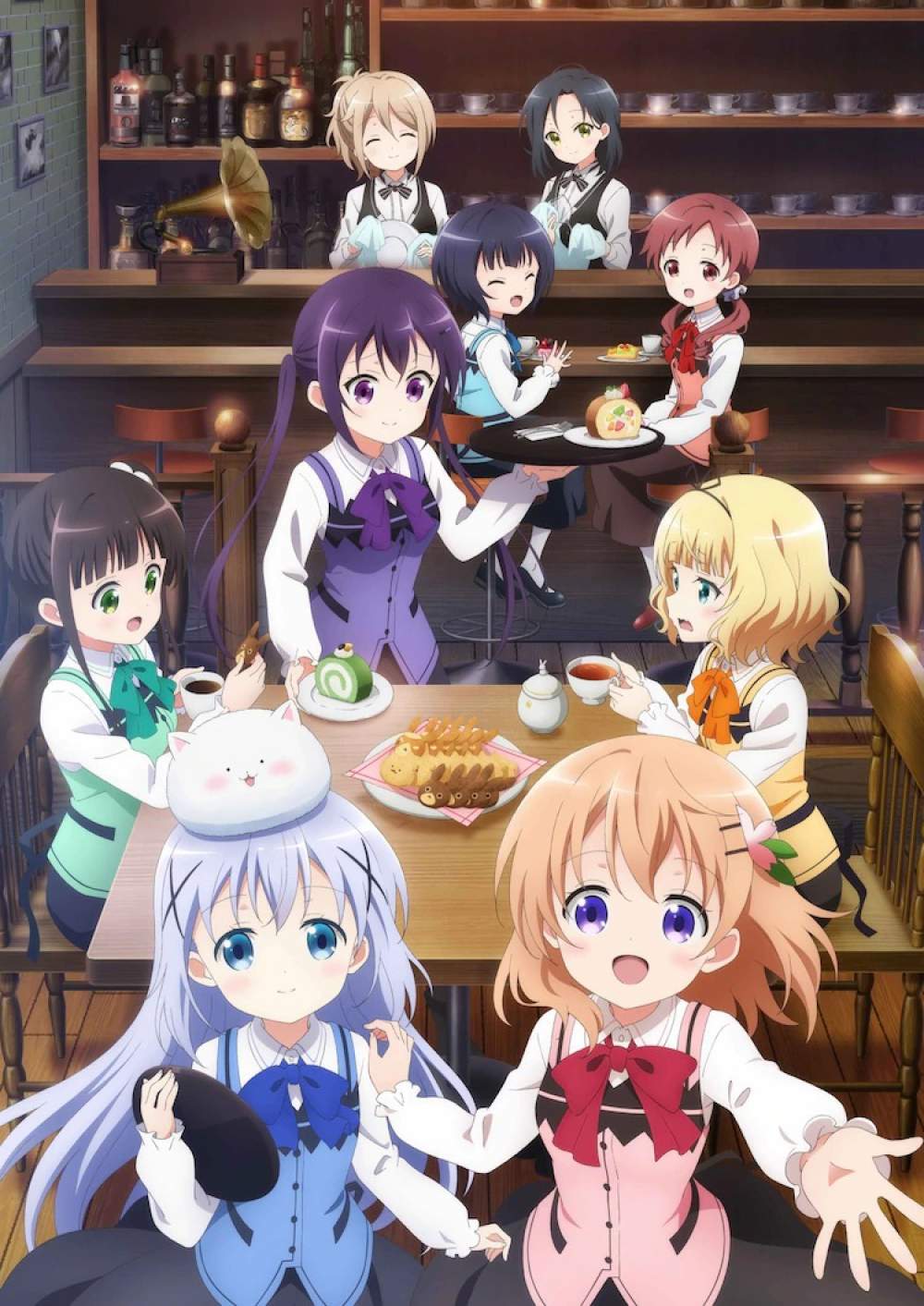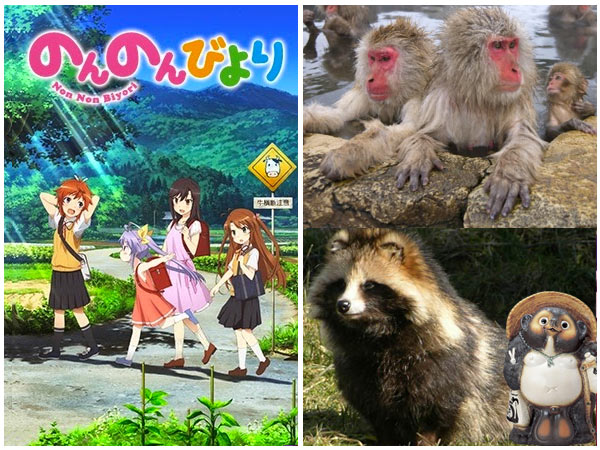
Recently I started watching an anime from a few seasons ago called Non Non Biyori, translatable as something like “fine weather for enjoying a carefree day.” It’s a charming slice-of-life story about a girl named Hotaru who moves from Tokyo to an extremely rural village somewhere in the countryside. She’s surprised to find that there are only five students in her new school, which is taught in one classroom, Higurashi When They Cry-style. The show explores the differences between city and country life (Hotaru is up on all the latest Tokyo fashion trends, and is surprised to learn that Renge’s family owns a mountain), and about how Hotaru comes to love the village, even though the only thing to do for excitement is visit the candy store and buy traditional dagashi candy. I found the show hilarious – my laughter woke Mrs. J-List several times – perhaps because J-List’s home prefecture of Gunma can a pretty rural place, too. In one scene Komari and Hotaru go “shopping” but the store they visit is an untended vegetable stand in which you put money in a box before taking what you need, funny because there’s one of these right around the corner from J-List. If you ever have too much stress from blinking mobile phones and buzzing social networks, I recommend you turn on Non Non Biyori and feel your stress melt away.
Although Japan can get a little carried away with building stuff – when I took a trip to Hakone last year it was a challenge getting pictures of Mt. Fuji without power lines getting in the way – there is still plenty of nature to enjoy, and many animals, too. On weekends I sometimes take a drive up to Karuizawa, the pleasant town in the mountains that’s seen in several anime series including AnoNatsu, and along my route there’s a stretch of road I know to go slowly on because I’ll usually see some nippon-zaru, Japanese monkeys, lazily hanging out. (These are the same smart monkeys that know to take hot onsen baths during the winter.) There are lots of other animals to be found in the Japanese countryside, includingpheasants and foxes and wild boars, and bears are common enough in Nagano that an American friend of mine got his Japanese hunting license, in case any ever decide to raid his kitchen. One of the most enigmatic animals in Japan to foreigners are tanuki, the “raccoon dogs” that look at first glance like racoons, though they’re not closely related. Like foxes, tanuki are considered god-like, able to change shape and use youkai magic. This magic seems to have something to do with their testicles, and it’s not common to see statues of tanuki outside restaurants with huge kintama (lit. “gold balls”), which represent fertility and plenty and presumably bring good luck to the restaurant owner.
Fashion week continues here at J-List, as we continue to ramp up our lineup of fun items for fall/winter. We’ve got more cute Fluffy Cat Ears and Tail Dress Parkas with actual ears and tails, plus cute Japanese socks, “spats” (the bicycle shorts seen in anime a lot), interesting bags from Japan and more. Browse them all now!




